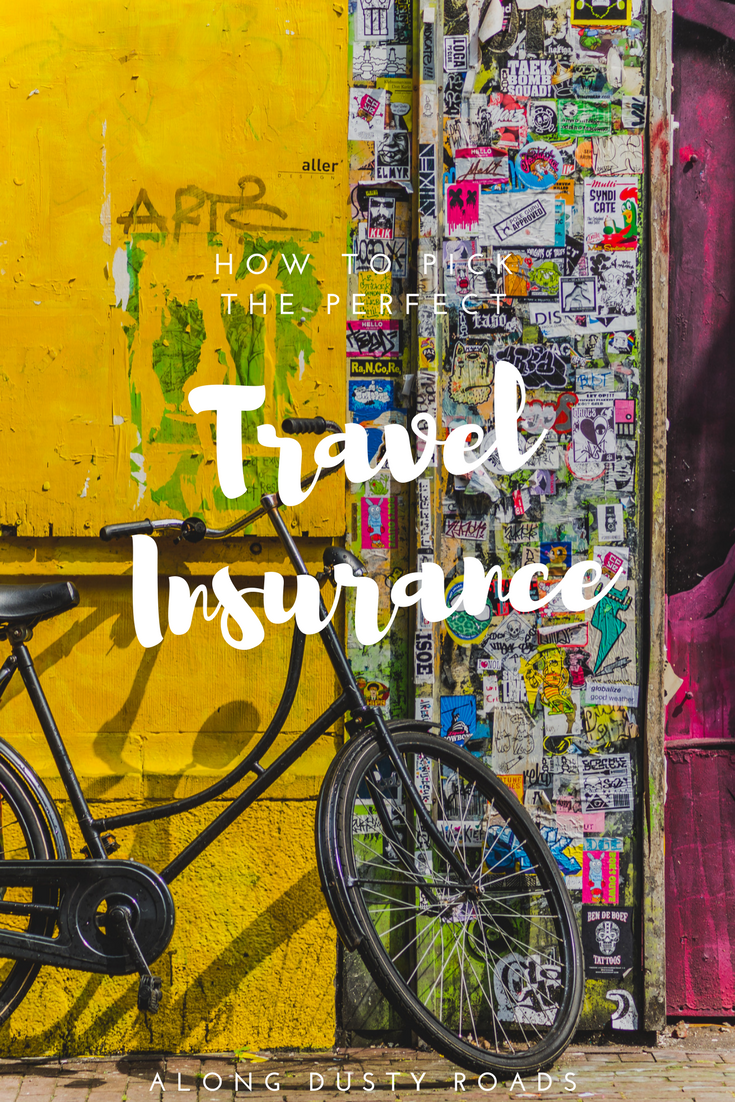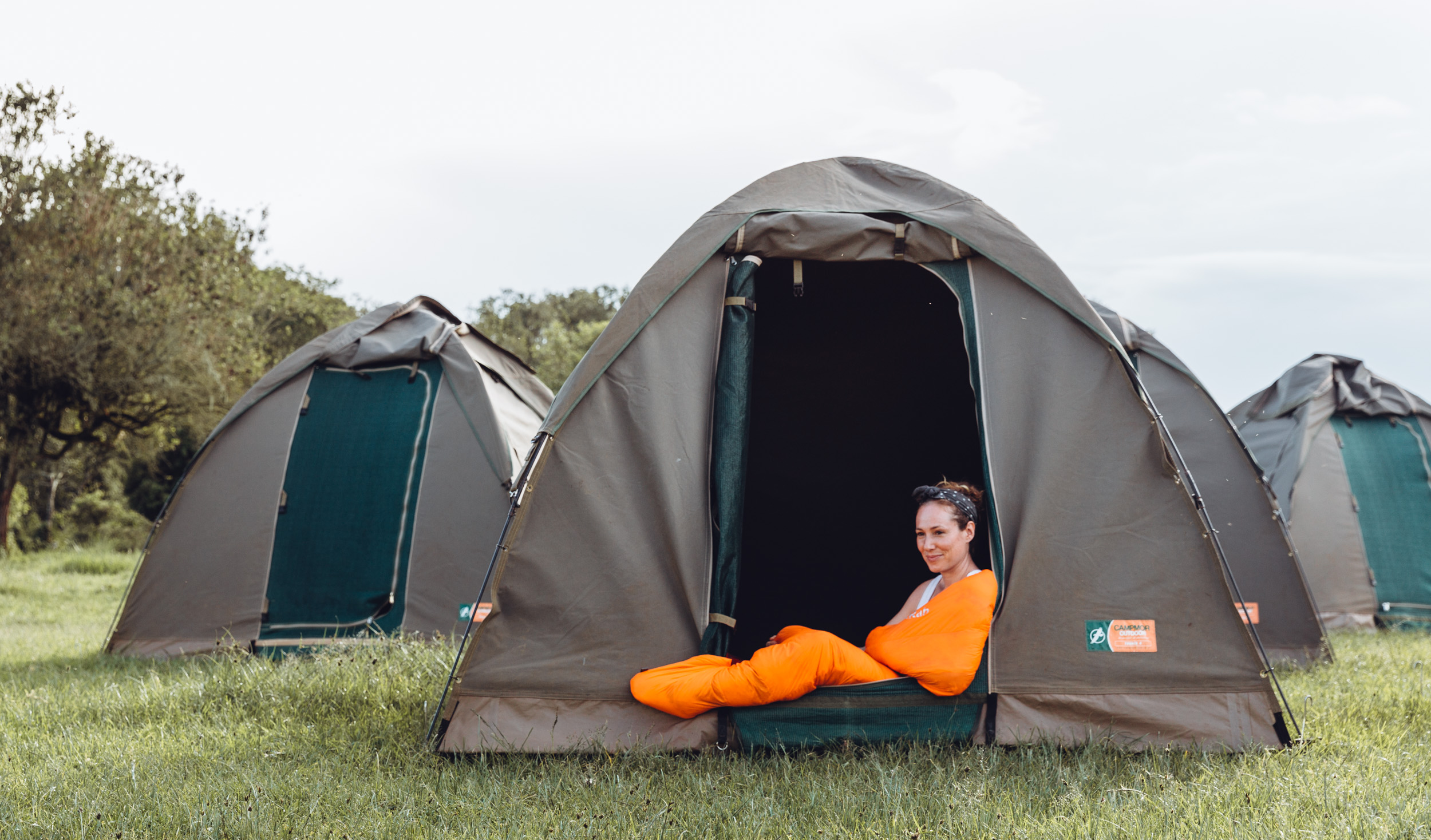In the UK, I used to work in insurance.
That's the only explanation I ever need to give to anyone when they ask me why I quit my job to travel.
It wasn't my chosen career path, but I somehow ended up working in a suit at a big company for four years. This allowed me to understand some of the ins and outs of policy wordings, limits, warranties and exclusions.....sorry I'll stop now. It's really boring, I know.
But, that's why so many people get it wrong or make mistakes. It is boring BUT if something goes wrong, your travel insurance policy could be a life saver or prevent you or your loved ones from going into horrendous debt.
The purpose of this post is not to give you reasons why you need to purchase insurance for your trip (that should be a given, in fact our maxim is 'if you can't afford travel insurance, you can't afford to travel'), but rather help you avoid common mistakes made by the consumer.
So here are 13 important things to remember when looking for your next travel insurance policy.
#1 not buying it makes you an idiot
Anyone who doesn't buy travel insurance for their trip really is an idiot.
Yes, your last 12 trips went by without incident and your insurance felt like a waste of money - this is true for the majority of travellers.
However, not having it when that one shit moment inevitably happens may result in a ruined holiday, hospitals declining to give you a certain level of care or your family having to scrape together thousands to get you home in one piece.
Yes, some insurers will probably try and screw you out of every penny, but you will at least have some level of protection when it matters.
#2 forgetting to factor it into your budget
Plane tickets, vaccinations and insurance.
These are likely to be your big ticket purchases when going on a trip and, depressingly, they all happen before you've even packed your backpack! Start looking for insurance early, not at the last minute.
Any decent year-long policy for a backpacker is going to cost more than £150 but it is a wholly necessary cost and it will save you a lot of angst if you factor it in when you start planning for your trip, rather than unexpectedly having to take it out of your hard-saved funds at the last minute.
Also, the cheapest insurance policy is often the cheapest for a reason. Don't just purchase based on the price-tag as their cover is often restricted beyond belief.
#3 if you travel a lot, don't just buy a single-trip policy
It's easy to find a policy for £10 the night before you leave for your two-week break. But if you know that you're going to take at least 3-4 trips in a year, then do yourself a favour by purchasing a more comprehensive multi-trip annual policy.
It works out cheaper in the long run and will save you the hassle of looking for the right one before every trip.
Watch out however as a number of insurers may set this as an automatically renewing policy at the end of each year; make sure you give notice of cancellation within the stated period if you don't want this to happen.
#4 not having cover for your adventurous travel personality
Sure, when at home, you wouldn't dream of riding a motorbike off-road or spontaneous river kayaking trips, but this is 'backpacker-you!'. You're much more interesting and adventurous person when you're on the road!
People tend to take a lot more risks, make decisions they wouldn't otherwise make and be a whole lot more daring when they're on a trip abroad. And insurance companies HATE risky activities because that means proper injuries and high costs; they'd much rather cover the dull stuff like lost baggage.
A basic travel policy is likely to look fit for purpose on first glance, but will actually contain a lot of exclusions for certain types of activity, so make sure to take your time to find the right one to cover medical costs if you break your leg bungee-jumping in Thailand. There are a number of backpacker/gap-year specific policies out there with wordings specific to the sort of trip most of us have.
#5 don't be fooled by high limits
The headline part of coverage is the limit (the maximum amount of money an insurer will pay out per claim). Insurers can however use these deceptively to make a policy appear better on paper than it actually is.
For example, £5million of coverage for medical expenses is going to be adequate for 99.99% of claims of this nature, so buying the more expensive policy with £10 million may not be necessary.
#6 ...or a cheap policies with high deductibles
Equally, a key difference between policies is the level of deductible/excess (how much of the risk YOU retain per claim).
The cheaper a policy is, the higher your deductible will be. So any savings you make on the up-front policy cost may ultimately be short-lived if you actually have to claim. Here's an example:
You claim £500 and the insurer approves this. On cheap policy A (cost £100), your deductible (share of the risk) is £250, so you will only receive £250 on the claim.
However on policy B (cost £150), your deductible is £100. On the same claim £500 as above, you will receive £350 back.
By going with the more expensive policy B, you're ultimately £50 better off after the claim. This may not be a major consideration, but it's important you note down and understand why the policy is cheaper and how this will actually affect you in the event of future claims.
#7 not reading the policy wording
This is the part that really makes or breaks a policy.
You can purchase something where the summary of cover looks fantastic - high limits, low deductibles and they even cover high-value items!
However, all this may mean nothing if the insurers then proceed to restrict cover to the bare bones in the small print via warranties and conditions. It's just as important that you know what isn't covered by the policy.
Never buy a policy only on the basis of price without properly reading the policy wording. Not all policies are the same and will contain a different scope and breadth of coverage.
For example, a number of newer travel policies will deny a claim if you were 'intoxicated' during the event. Some restrict theft coverage to an extremely unlikely set of scenarios. Our current travel policy states that we are not covered for illness unless we can prove we have been taking the NHS prescribed malaria medication.
Such restrictions of cover, often worded in vague or confusing language, allow the insurers to weasel out of a number of claims which, to us the consumer, appear to be covered on first reading.
If you are unsure about what is covered, don't be afraid to write to the company prior to purchase asking about how the policy would react in 'X' situation?
On the malaria example, I spent an afternoon reading through all the documentation and found the warranty about medication buried towards the end of a 30-page document. For me, the policy could be interpreted as removing ALL illness coverage if we didn't take our malaria medication, whether or not our illness was related to malaria. Further, how can you PROVE to an insurer that you have taken the medication as required? We can certainly prove that we got it prescribed, but it is impossible to show you've consumed every tablet.
I wrote to them over the course of several weeks trying to get a response on this, and finally they gave me certain assurances about how the policy would respond. If I hadn't been given this clarity, then I would not have purchased the policy.
So, to repeat myself, make sure you read the policy before purchasing, if you have any concerns over exclusions or coverage, ask the insurer to clarify, get it in writing and inform them that you have purchased coverage on the basis of what they've told you. Research also shows that travel insurance is best not purchased at the last-minute, so make sure you give yourself time.
It won't necessarily mean your claim is always met by them, but it will be much more difficult for them to deny it without proper justification.
#8 assuming your valuables are covered
Most travellers now hit the road with at least a phone and perhaps a tablet or laptop. More and more are now purchasing SLRs and lenses, the value of which runs up to thousands of pounds.
The problem with most affordable travel policies is that there is a limit on insurable valuables, often around £250 per item. The policy may cover you for £1000 worth of tech, but if it will only cover a SINGLE ITEM up to a value of £250, then your Macbook or SLR is pretty much not covered.
Specified items of a higher value may be included for an additional premium, but this is again often limited to an amount which may not reflect every piece of technology you are bringing with you.
You have three options here:
1) Take a carpe diem attitude and retain the risk yourself. In other words, don't insure them and cross your fingers that nothing happens.
2) Find a more expensive travel policy which will allow you to insure these items.
3) Find a separate specialist insurance policy for these items. The cost may still be high, but these will have a wording more catered to insuring your technology on your travels.
#9 thinking you can renew easily when you're abroad
If you know you're going to be travelling for more than 12 months, then try to get a policy for the longest period possible. Often, this will be a maximum of 18 months if you aren't stepping foot back in the UK at all.
The trouble comes once this policy is close to expiration and you still don't have plans on returning home yet. There are only a limited number of insurers who will give you a new policy whilst you're still away from home, so be aware of this.
When our original policy was close to expiration, I reviewed our options over the course of a few days and decided to go with True Traveller. The coverage they offered was pretty much in line with what other insurers offered but was at a much more affordable price-point; we had both been really concerned at how much renewing whilst out of the UK was going to cost us, but this was an extremely affordable option (about 1/3 of the cost in comparison to the World Nomads alternative).
We continue to use True Traveller for affordable travel insurance coverage for our trips; get a quote here for your own big adventure.
#10 not knowing about aggregate vs. single claim limits
This is another devious trick that insurers play which you might not realise until it's too late. Here's how it works:
You have a particularly unlucky year and have to make several claims under one section of coverage which provided £1,000 of aggregate cover.
Claim 1 of £500 gets paid without any trouble.
Claim 2 of £500 gets paid without any trouble.
Claim 3 of £1000 is swiftly rejected.
End result: 2/3 claims are paid, but you are down by £1,000.
Why you ask? Well you have only got £1,000 of TOTAL coverage for the policy period under this area of coverage. Once you've exhausted it, after claims 1&2, you're done.
However, if you had coverage with a single-claim limit of £300, then you would be able to claim for each of the 3 above claims, but would end up short on each and everyone!
Claim 1 of £500 gets paid, but only to a value of £300
Claim 2 of £500 gets paid, but only to a value of £300
Claim 3 of £1000 gets paid, but only to a value of £300
End result: 3/3 claims are paid, but you are down by £1100.
Insurers have a lovely sense of humour eh?! In reality, this sort of situation is unlikely to affect you, but it is well worth knowing when you are comparing the level of coverage between two different travel policies which may use this type of method.
#11 not knowing about claims procedures BEFORE you have to claim
Again, this is the nitty gritty of a policy where insurers may make a policy so onerous that your claim can be rejected for a minor administration delay or error on your part.
For example, in the event of theft you will usually be required to provide a police report within 24-48 hours - in certain countries where you don't speak the language this may be extremely difficult or stressful for you to obtain the day after you've been robbed.
If you have to be rushed to hospital, in most circumstances, insurers will need to be made aware prior to you receiving thousands of pounds worth of medical care. If not, they may decline coverage.
This means that when picking your insurance provider, you absolutely need to be aware of how soon you need to contact them, and only buy from a company which has a 24-hour telephone claims service and on-line claims team.
My one piece of advice is this - operate on the assumption that if you don't contact them within 24 hours - at least with a brief e-mail - you're only giving them opportunities to reject your claim. Doing this will at least allow you to start a dialogue with them on what they require and by when from you on a good footing.
#12 not organising paperwork and receipts in order before you leave
Have a copy of your policy somewhere on-line and your claims service 24-hour number and e-mail address readily available.
If you're an EU citizen, always keep your EHIC card with you during travels in Europe.
Make copies of your receipts and proof of ownership for valuables, and perhaps leave the originals with family back home for safe-keeping.
For our specialist camera policy, I had to dash around London the day before we travelled to obtain certain proof of ownership and valuations which the insurer only told me about at the last minute, otherwise our cover would have been worthless. This is just one reason why research shows that travel insurance is best not purchased at the last-minute.
#13 thinking you'll find the perfect policy
And this is the final kick in the genitals. Despite all the effort you may put in to it - researching and comparing all policies, contacting the insurers, getting all your paperwork in order - your policy is still never going to meet every situation or potential mishap. That's not what it's there for.
The perfect travel policy to cover all eventualities just doesn't exist and, if it did, you probably wouldn't be able to afford it anyway.
All you can hope is that when the shit really hits the fan, your policy has got the coverage you really need.
like it? pin it!
Disclaimer: Over the course of this trip, we have paid to insure with two companies - Flexicover and True Traveller. We'd recommend checking out True Traveller for affordable travel coverage for short or long-term backpacker trips, and particularly if you are looking to buy insurance or renew after you've already left the UK - but remember to always read the policy wording prior to purchase to ensure the policy is suitable for you and your adventure. Get a quote here.
Although I worked in the insurance world for a few years, this article is not designed to and does not provide professional advice, opinion, treatment, opinion or services to you or to any other individual. Through this article, alongdustyroads.com provides general information on travel insurance for educational purposes only. It is not a substitute for professional advice and it cannot be held liable or responsible for any purchasing decisions you make after reading this article. This article contains affiliate links where we receive a small commission for any purchases made.



















